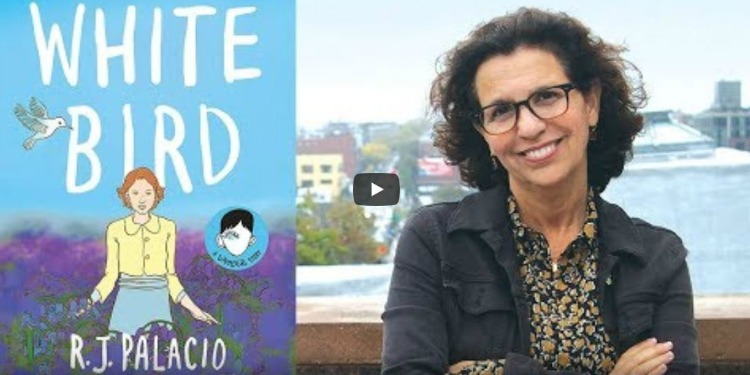Even though you yourself are not Jewish, you write in the author’s note about your husband’s family. How much did their story influence “White Bird”?
It didn’t influence the actual, specific events; I was more influenced by when I [lived] in Paris for a year. But it did affect, very much, my passion for the subject. I was very close to my mother-in-law, and she lost much of her family in the Holocaust. Not that she knew them, but still I think, existentially, to have suffered that kind of profound loss affects generations. I could not stop thinking about her while I was working on this, wishing she could have lived to have seen it, cause I think she would have loved it.
What was your research process like?
I’d always been obsessed with stories in and around the Holocaust. Because A, it’s almost impossible to imagine the suffering that happened, and B, it’s even more impossible to imagine that it could have happened, and that people let it happen, that the world let it happen.
I remember reading Martin Gilbert’s book “The Righteous,” which were stories about the gentiles who actually tried to shield Jews and rescue Jews, and sometimes Romani, from persecution. I’ve always been very moved by the call to goodness, and the strength it took for people to do the right thing. And those tie in very much to “Wonder”; “Wonder” is about kindness and, ultimately, standing up for your neighbors, standing up against intolerance — that’s also an extension of kindness. The kind of kindness that takes a little more courage.
Why do you think it was important to tell Sara’s story?
This is a story about a little girl who was growing up feeling completely ordinary, very much like Auggie in a lot of ways, except she really was ordinary. She had loving parents, a great school, lots of friends and she was popular. And yet she, like her friends, was not especially nice or kind to the little boy at school who had polio and walked with two crutches.
Ironically, this is the very boy that ends up rescuing her when Nazis come for the Jewish kids one day. As she gets to know him, she realizes that first of all, she’d been kind of a jerk, but also what they actually had in common was that they were judged for things that were beyond [their] control. There’s a whole learning process for her and evolution for her as she realizes that she is alive because of the kindness of this boy and his family, who risk everything to shield her…
Why a Children’s Author Wrote a Holocaust Story
The Fellowship | October 23, 2019

Many of your children or grandchildren — and perhaps some of you — have read the hit young adult novel, Wonder, which deals with a child suffering from a physical disability. Wonder has spoken to millions, through both the book and the subsequent film adaptation, thanks to the heart and soul and skill of its author, R.J. Palacio. Palacio’s latest book, White Bird, also exhibits the same attributes, while introducing its young audience to the Holocaust. Speaking with The Times of Israel, Ms. Palacio explains why she, a Gentile, decided to tackle this difficult topic for her juvenile readers:
